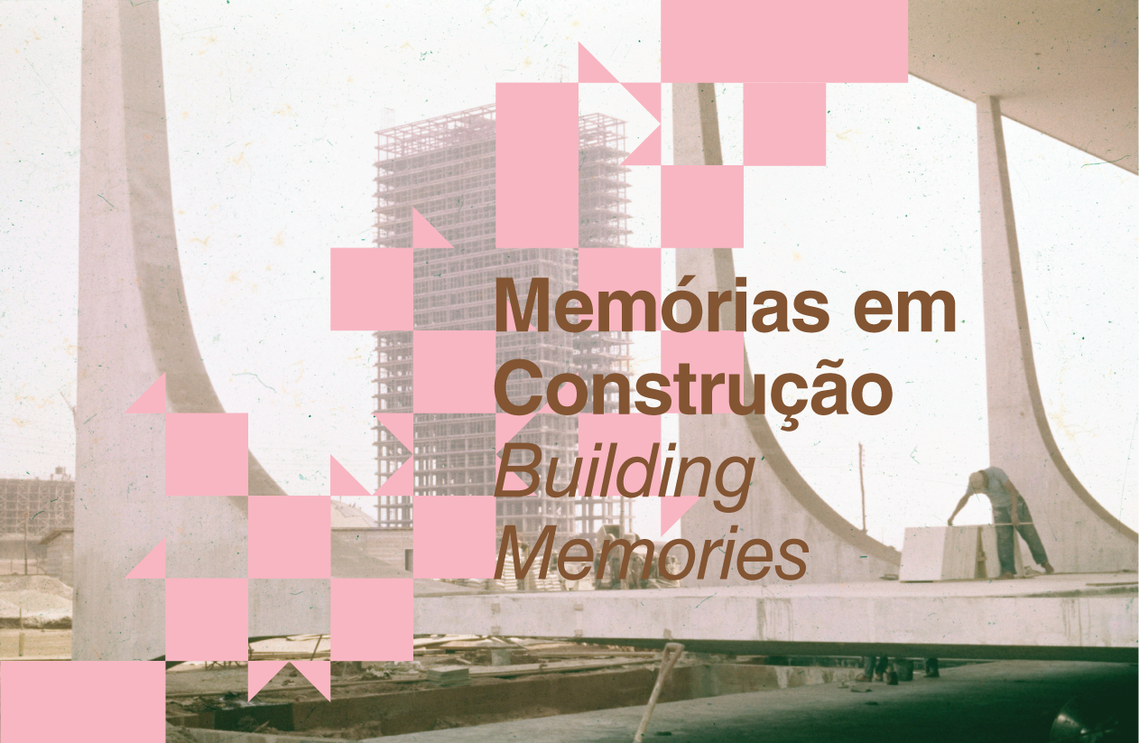MEMÓRIAS EM CONSTRUÇÃO/ BUILDING MEMORIES
Com o tema “Memórias em Construção”, a Mostra explora a contínua produção dos espaços das cidades, os processos de patrimonialização marcados pela globalização em curso na sociedade contemporânea, a noção de patrimônio como um território, real ou imaginado, que participa na construção de marcos da relação entre o tempo passado, o presente e o futuro que almejamos coletivamente, para refletir sobre a forma como atualmente vivemos e narramos as nossas cidades. Nesse sentido o cinema apresenta as cidades e suas paisagens em narrativas que compõe o imaginário e formam o conjunto de suas memórias e sua história.
O tema da preservação do patrimônio ganhou destaque neste último ano pelo episódio do Museu Nacional do Rio de Janeiro, que teve grande parte de seu edifício e acervo queimados pelo fogo. Em Brasília, uma cidade nova, com menos de 60 anos de existência, os debates sobre o patrimônio, conservação e preservação não são menos importantes: em 1987 a área que configura o projeto de Lucio Costa (Plano-Piloto e seu entorno imediato) foi reconhecida como Patrimônio Histórico e Cultural da Humanidade pela UNESCO, regulamentando a proteção da cidade central a título de preservação. Acelerando, no entanto, dois processos bastante conhecidos da cidade contemporânea, a dispersão e o congelamento de seu centro “histórico”.
Os debates sobre a conservação dos bens patrimoniais indicam um movimento constante de operacionalização do passado, de criação de símbolos e, portanto, expressam visões plurais e estratégias políticas acerca da realidade social. Nessa perspectiva, o patrimônio urbano é uma representação desses ideais e adquire um lugar central na problematização dos processos da sociedade contemporânea. A noção de patrimônio nos remete, portanto, à memória e à história e evoca as dimensões múltiplas da cultura como acontecimentos que merecem ser preservados porque são coletivamente significativos em sua diversidade.
O cinema traz à tona narrativas reais e simbólicas que revelam e abrigam memórias, afetos e apresentam relações entre o construído e o imaginado. A Mostra de Filmes de Arquitetura de Brasília - Cinema Urbana, nasce da necessidade de ampliar, pela lente do cinema, o entendimento da sociedade sobre a cidade e suas estruturas (sociais, culturais, arquitetônicas), ao estimular o contato do público com uma programação de filmes pouco exibidos nos cinemas e festivais, que convidam à reflexão em termos de cidadania - por essa palavra entendemos a formação, informação e participação múltiplas na construção da cultura, da política, de um espaço e de um tempo coletivos.
With the theme "Building Memories,” the festival explores the continuous production of spaces in the cities, the processes of museumization marked by globalization processes underway in contemporary society, as well as the notion of heritage as a real or imagined territory that participates in the construction of milestones that indicate the relationship between past, present, and the future that we collectively desire. The goal is to reflect on how we currently live and narrate our cities. In this sense, cinema presents cities and their landscapes in narratives that produce the imaginary, and form the collection of their memories and their history.
Heritage preservation gained prominence in this last year after the fire that burned a great part of the National Museum of Rio de Janeiro’s building and collection. In Brasília, a new city, with less than 60 years of existence, debates on heritage and conservation are no less important: in 1987 the area that constitutes Lucio Costa’s original project (the Pilot Plane and its immediate surroundings) was recognized as a World Heritage Site by UNESCO, thus regulating the protection of the central city towards preservation. Accelerating, however, two well-known processes of the contemporary city, the dispersion and the freezing of its "historical" center.
The debates on the conservation of heritage indicate a constant movement of operationalization of the past, of the creation of symbols and, therefore, they express plural visions and political strategies on social reality. From this perspective, the urban heritage is a representation of these ideals and acquires a central place in the problematization of the processes of the contemporary society. The notion of heritage thus refers to memory and history, and evokes the multiple dimensions of culture as events that deserve to be preserved because they are collectively significant in their diversity.
Cinema brings to the surface real and symbolic narratives that reveal and harbor memories, affections, and present relationships between the constructed and the imagined. The Architecture Film Festival of Brasilia – Cinema Urbana, arises from the need to expand, through the lens of cinema, society's understanding of the city and its structures (social, cultural, architectural) by stimulating public contact with a program of films that are rarely seen in theaters and festivals and which invite reflection in terms of citizenship - by this word we mean the formation, information and multiple participation in the construction of culture, politics, and of a collective space and time.

